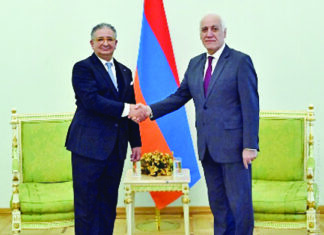Recent political developments in Turkey, particularly the arrest of the opposition leader, have not generated the expected level of international political attention. While the arrest was discussed and some official statements were issued, the Western political establishment’s response has been mostly muted. This is particularly noteworthy given that US Vice President JD Vance had previously accused Europe of canceling elections and straying from its declared values. Obviously, the Trump administration prioritizes stability in Turkey over democracy, human rights, or fair elections, as evidenced by its response to the arrest of the Turkish opposition leader.
From the American perspective, Turkish President Recep Tayyip Erdoğan is seen as the sole guarantor of this stability, explaining President Donald Trump’s deference, Secretary of State Marco Rubio’s evasiveness, and other similar official positions. Geopolitics dictates that strategic interests, not other nations’ internal affairs, ultimately guide state actions.
Despite the fact that President Joe Biden emphasized human rights in foreign policy, the US maintained a key strategic alliance with Saudi Arabia, where human rights are demonstrably lacking. This highlights how strategic interests often supersede ideological commitments in foreign policy.
Turkey is effectively “selling” its influence over Syria, over the South Caucasus, over Azerbaijan, and over the wider Middle East. It asserts that its involvement ensures relative stability in Syria, preventing refugee flows to Europe. At the same time, countries welcome Turkey’s use of its influence in Syria to contain Iran.
In the case of the South Caucasus, Ankara further shows that Erdoğan’s Turkey is the sole guarantor of preventing renewed conflict if the West hopes to avoid such a scenario. Erdoğan aims for Turkey to secure a prominent role in the reshaping global order, leveraging its strategic advantages. This ambition reflects Turkey’s rapid political evolution, despite its economic challenges, distinguishing it from the Turkey of a decade ago. Despite these challenges, Erdoğan continues to win elections and de facto has led the Turkish state for decades.
Turkey’s relevance diminishes with global power stabilization, yet it asserts its indispensability by demonstrating that global challenges are difficult to address effectively without its influence. In other words, Turkey demonstrates its indispensability by shaping and exploiting conflicts, subsequently leveraging these conflicts to expand its influence in regions like Syria, Iraq, the South Caucasus (particularly Azerbaijan), Libya, Mali, and beyond, often through active military involvement. Turkey initiates military conflicts and subsequently asserts vital interests to justify its full participation in negotiations and resolutions.








